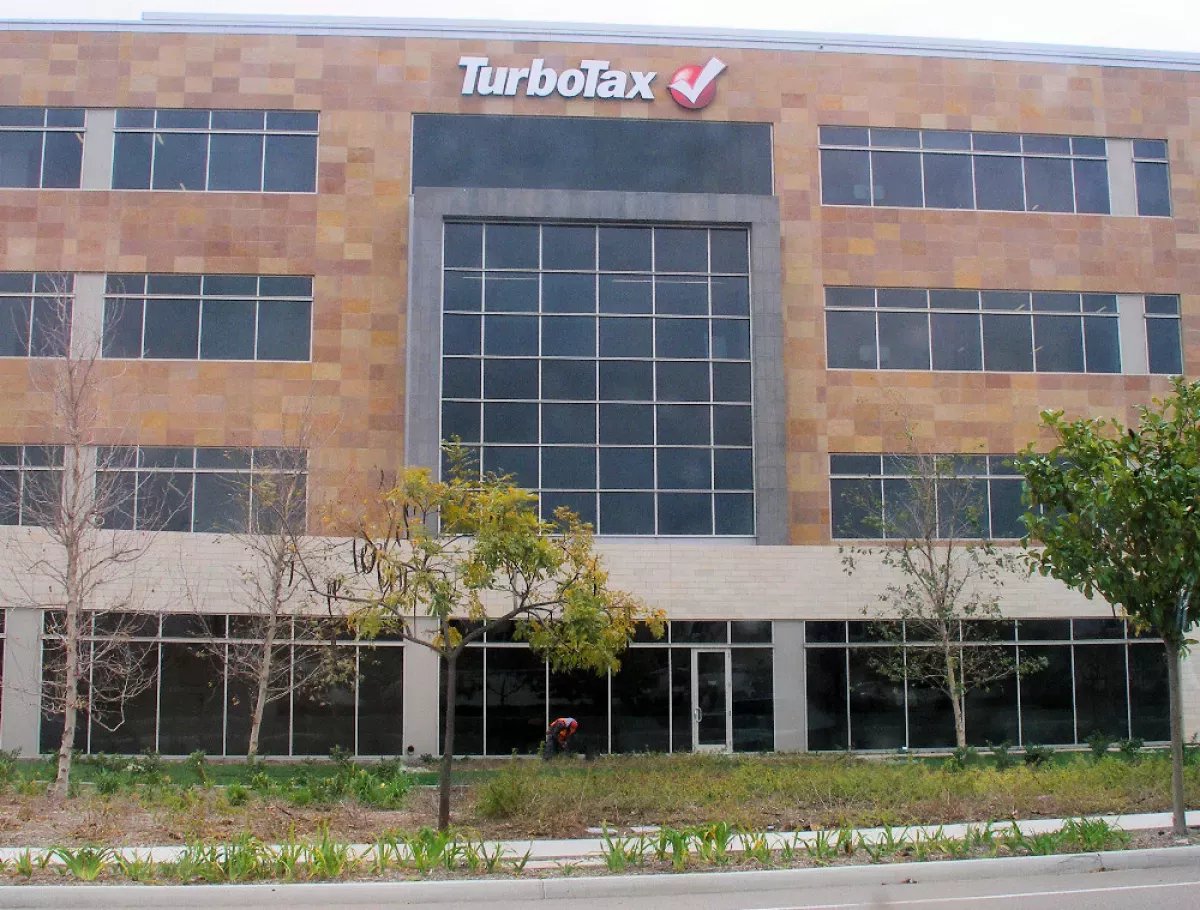TurboTax, created by Michael A. Chipman of Chipsoft in 1984 and acquired by Intuit in 1993, is a leading software package designed for preparing American and Canadian income tax returns. It competes with other tax software like H&R Block Tax Software and TaxAct. It simplifies the process of filing taxes for individuals and businesses, guiding users through various tax forms and calculations to ensure accurate and compliant submissions.
1984: TurboTax Developed
In 1984, TurboTax was developed by Michael A. Chipman of Chipsoft, marking the beginning of the tax preparation software.
1993: Intuit Acquires TurboTax
In 1993, Intuit acquired TurboTax from Chipsoft, expanding Intuit's product offerings.
2001: Password Saving Error
In 2001, TurboTax saved financial institution passwords entered by users to servers at Intuit and the home computer, creating a security vulnerability.
2003: Criticism for TurboTax Activation Scheme
In 2003, Intuit faced vocal criticism for its TurboTax activation scheme, which was subsequently removed from the product.
2003: DRM in TurboTax Software
In 2003, the TurboTax software contained digital rights management that tracked whether it had previously been installed on a computer by writing to sector 33 on the hard drive. This allowed it to track if it was on a computer previously, even through reinstalling the operating system. This also caused it to conflict with some boot loaders that store data there, rendering those computers unbootable.
2005: Free File Alliance Participation
In 2005, TurboTax extended its offering by allowing any taxpayer to use a basic version of its federal product for free as part of the Free File Alliance.
2006: Free File Eligibility Limited
By 2006, TurboTax limited its free federal online tax preparation and e-file offer to taxpayers whose adjusted gross income is $28,500 or less (or $52,000 for those in the military) and those 50 or under. TurboTax also received complaints regarding its advertising of the free version. State tax filing is not free, and the cost of using TurboTax to file state returns is not presented to the user until they've already completed entering their information for federal returns.
2007: Lobbying on Bills to Bar Return-Free Filing
In 2007, Intuit lobbied on bills that would have barred the Treasury Department, which includes the IRS, from initiating return-free filing.
December 12, 2008: Rescinded 'Pay Per Return' Policy
On December 12, 2008, Intuit announced that it had rescinded its new "Pay Per Return" policy, which had been criticized for adding a $9.95 fee to print or e-file each additional return after the first.
2008: Intuit's Lobbying Efforts Begin
Starting in 2008, Intuit began federal lobbying efforts, opposing IRS government tax preparation.
January 21, 2009: Geithner's TurboTax Use Highlighted at Senate Hearing
On January 21, 2009, TurboTax received public attention at Timothy F. Geithner's Senate confirmation hearing for United States Secretary of Treasury. Geithner had used TurboTax to prepare his tax returns for the years 2001 to 2004 but had incorrectly handled the self-employment taxes due as a result of his being employed by the International Monetary Fund. Geithner took responsibility for the error and paid $42,702 in back taxes.
2011: Lobbying on Bills to Bar Return-Free Filing
In 2011, Intuit lobbied on bills that would have barred the Treasury Department, which includes the IRS, from initiating return-free filing.
2012: Data File Download Option Removed
As of 2012, TurboTax offers no option to download a data file directly from the financial institution, instead prompting the user for their login name and password or permits the data to be entered by hand.
2012: Intuit Spent More Than $11 Million on Federal Lobbying
By 2012, Intuit had spent more than $11 million on federal lobbying, opposing IRS government tax preparation.
2012: Intuit's Concerns About Governmental Encroachment
In its 2012 Form 10-K, Intuit said that "We anticipate that governmental encroachment at both the federal and state levels may present a continued competitive threat to our business for the foreseeable future."
2013: Intuit Responds to Criticism about Lobbying
In early 2013, an Intuit spokeswoman said that return-free filing had "implications for accuracy and fairness in taxation."
January 2015: Schedule Support Removed from Deluxe and Premium Versions
In January 2015, it became known that the Deluxe version no longer supports IRS Schedules C, D, E, and F in interview mode, and the Premium version no longer supports Schedule C or F in interview mode. Intuit was widely criticized for these changes.
February 5, 2015: Intuit Reverses Course on Schedule Removal
On February 5, 2015, Intuit announced that they would reverse course in their 2015 Deluxe and Premium versions, including the schedules that were historically included in the software, after widespread criticism.
February 15, 2015: State E-Filing Temporarily Suspended
On February 15, 2015, Intuit Inc. temporarily suspended the transmission of state e-filed tax returns due to a surge in complaints from consumers about refunds already claimed in their name.
February 22, 2015: Allegations of Fraudulent Returns Allowed by Intuit
On February 22, 2015, it was alleged by two former employees that Intuit knowingly allowed fraudulent returns to be processed on a massive scale as part of a revenue boosting scheme.
2017: Boycott of Intuit Proposed
In 2017, journalist Dylan Matthews proposed a boycott of Intuit due to their lobbying efforts.
2017: ImpôtRapide Renamed TurboImpôt
In 2017, the French version of TurboTax, previously called ImpôtRapide, was renamed TurboImpôt.
December 30, 2019: TurboTax Can No Longer Hide Free Version
Starting December 30, 2019, under a new agreement from the IRS, TurboTax can no longer hide their free version services from search results.
2019: ProPublica Investigation Reveals Deceptive Practices
In 2019, a ProPublica investigation revealed that TurboTax deliberately made its free version hard to find and deceptively steered individuals to paid versions, even those eligible for free filing under the IRS Free File program. TurboTax also tricked military service members into paying for filing, despite their eligibility for free filing.
July 15, 2021: Intuit Withdraws from Free File Alliance
On July 15, 2021, Intuit announced its withdrawal from the Free File Alliance, effective after the tax season concluding in October 2021.
October 2021: Withdrawal from Free File Alliance Effective
In October 2021, Intuit's withdrawal from the Free File Alliance became effective, marking a change in its participation in the program.
2021: Stimulus Checks Diverted to Old Accounts
In 2021, some individuals who used TurboTax for their tax filings were unable to access stimulus checks sent by the government because TurboTax diverted the checks to old and unused bank accounts for the customers.
March 29, 2022: FTC Legal Action Against Intuit for Deceptive Advertising
On March 29, 2022, the Federal Trade Commission announced legal action against Intuit, the parent company of TurboTax, in response to deceptive advertising of its free tax filing products. The FTC claimed that the majority of tax filers cannot use any of TurboTax's free products which were advertised. Intuit announced that they would take counter action, claiming that their free tax filing service is available to all tax filers.
May 4, 2022: $141 Million Settlement Over Misleading Advertisements
On May 4, 2022, Intuit agreed to pay a $141 million settlement over misleading advertisements related to TurboTax's free tax filing products.
May 2023: Settlement Checks Sent to Customers
In May 2023, Intuit began sending settlement checks, ranging from $30 to $85 USD, to over 4 million customers as part of the $141 million settlement.
January 2024: FTC Orders Intuit to Fix Misleading Ads
In January 2024, the FTC ordered Intuit to fix its misleading ads for "free" tax preparation software, for which most filers wouldn't even qualify.
March 2024: Intuit Stops Providing Free TurboTax Service
As of March 2024, Intuit has stopped providing its free TurboTax service.
Mentioned in this timeline

A bank is a financial intermediary that accepts deposits from...
Trending

27 minutes ago Shakira Announces Free Concert in Mexico City's Zócalo for Her Fans

3 hours ago Roman Reigns Pulled From Show, Wins Royal Rumble 2026; Future WWE Plans

2 hours ago Mike Goldberg details Brock Lesnar's transformative impact and influence on the UFC.

2 hours ago 7.1-Magnitude Earthquake Strikes Sabah, Malaysia, Shaking the South China Sea Region

4 hours ago Brook Lopez's Double-Double, Zubac Trade Impact, and Clippers Notes Highlighted.
4 hours ago House of the Dragon Season 3: Total War and Targaryen Battle Teased.
Popular

Jesse Jackson is an American civil rights activist politician and...

Barack Obama the th U S President - was the...

Bernie Sanders is a prominent American politician currently serving as...

Michael Joseph Jackson the King of Pop was a highly...
The Winter Olympic Games a major international multi-sport event held...

XXXTentacion born Jahseh Dwayne Ricardo Onfroy was a controversial yet...
